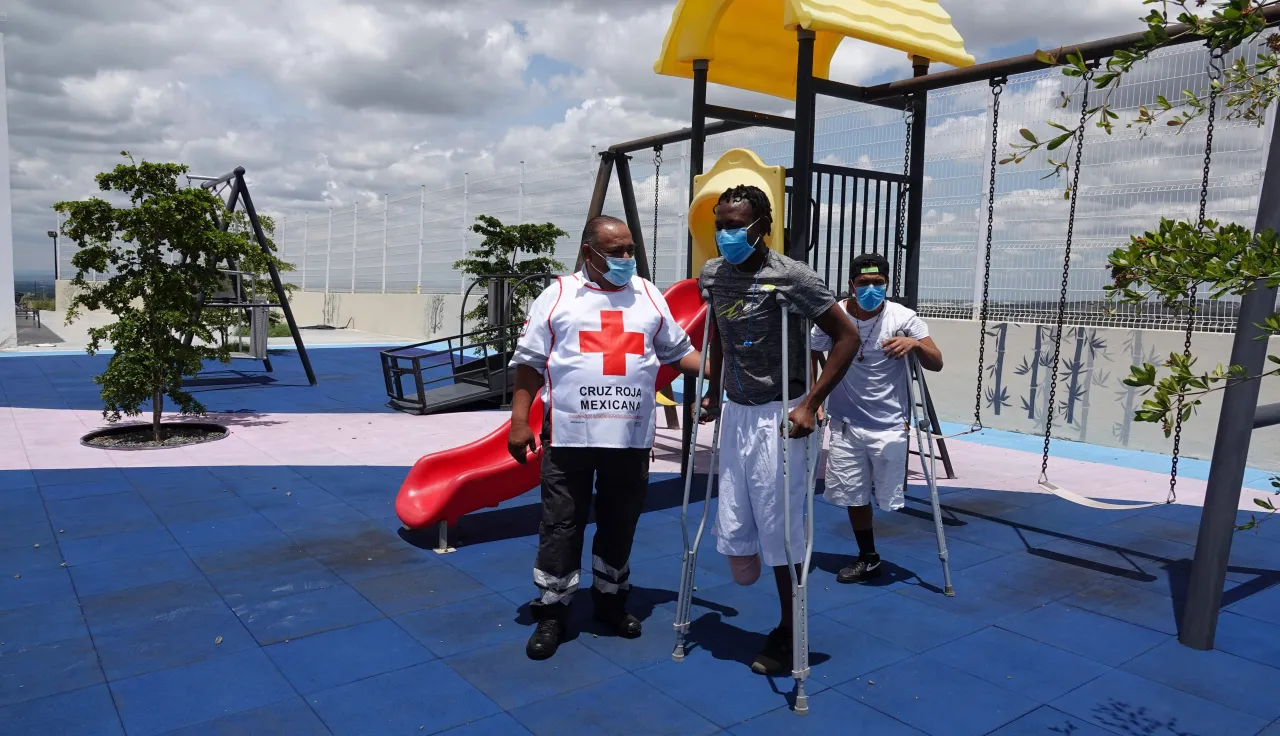Serving the wounded and the most vulnerable
Civilians who get caught up in an armed conflict can be left disabled or even lose a limb. And persons with acquired disability or illness find themselves extremely vulnerable in time of war.
After a life-changing injury, physical rehabilitation is the key to a full and independent life.

Helping those wounded in armed conflict to recover functioning and live a full life.
Bringing essential assistance to the physically disabled in conflict situations.
Contributing to efforts to ensure inclusion for those with disabilities in all aspects of life.
Civilians who get caught up in an armed conflict can be left disabled or even lose a limb. And persons with acquired disability or illness find themselves extremely vulnerable in time of war.
Our rehabilitation programme was founded in 1979. Since then we have become a leader in the field, thanks to our depth of expertise, the technology we have developed to produce high-quality assistive and mobility devices at low cost, and our lasting commitment to the centres we support. Our process aims to restore and enhance not only the person’s ability to physically perform daily tasks, but their sense of independence as well.
The initial goal of our Physical Rehabilitation Programme was to provide disabled people with mobility devices, such as prostheses (artificial limbs), orthoses (supports for existing limbs that need help to function) and wheelchairs. Today this mission has expanded to the development of comprehensive rehabilitation and professional trainings to ensure the sustainability of services provision but manufacturing assistive technologies stays at the heart of our action. In partnership with Fondation Alfaset, we produce components for assistive technology under the brand name Rehab Impulse.
Read more about our technology and see our work in action.
In our work, we aim to strengthen national physical rehabilitation services provision, by breaking down barriers and empowering everyone who needs them. By ensuring equitable access for all, we're building a future where physical well-being knows no limitations and no discrimination.
We work to improve the quality of physical rehabilitation through national rehabilitation professional training, specialist support, regular continuous education and creating and implementing treatment protocols.
We bridge the care gap by offering seamless early rehabilitation across all health care settings (hospital, pre-hospital) and integrating mental health support for a holistic recovery journey.
We and our local partners organize initiatives that encourage social, educational and professional integration such as sport activities, vocational training and inclusive schooling, microfinance programmes and job opportunities to help disabled people engage with their communities and, ultimately, to foster more inclusive societies.
Strengthening the rehabilitation sector gives a multiple return on investment, as people become contributing members of society again. Our programme’s systems-strengthening approach aims to ensure that the physical rehabilitation sector is well placed within the health system and the disability ecosystem. We help to develop policies, services and proper resources (funding, quality workforce and supply chains) to promote services to continue functioning at an acceptable level or even to further develop once we have left.